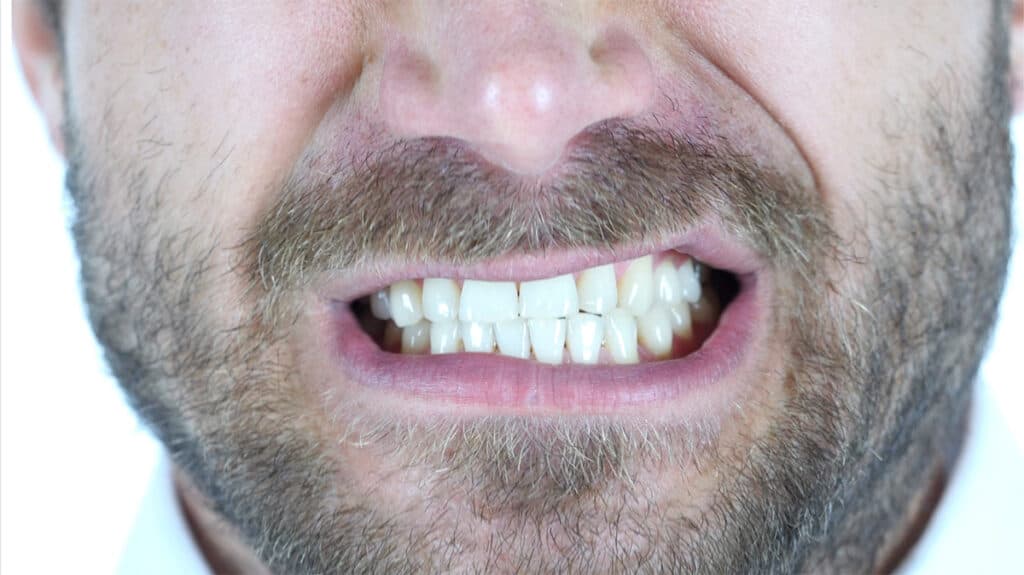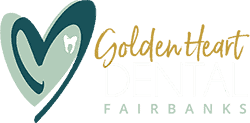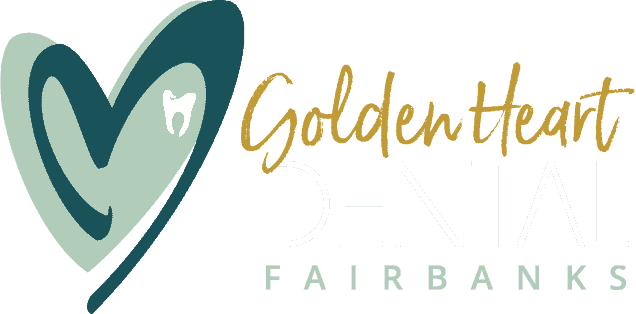
If you wake up with jaw pain or notice that your mouth is more sensitive than usual, you might be grinding your teeth without even realizing it. But is it anything to worry about? Read on to learn about the long-term effects of teeth grinding.
Why Do I Grind My Teeth?
There are several reasons behind unconsciously grinding your teeth and physical, genetic, and psychological factors need to be examined in order to determine a precise cause in each case.
Sometimes stress can be responsible for teeth grinding, as can anxiety or difficulty concentrating. Further, if you find that you’re grinding your teeth at night, it may be due to sleep apnea, certain medications you may be taking, hyperactivity, or acid reflux.
Tobacco use, caffeine consumption, and drinking alcohol can also exacerbate teeth grinding.
Coexisting Conditions: Sleep Apnea
Studies have shown that there is a correlation between nighttime grinding and sleep apnea / sleep-disordered breathing conditions, but the nature of the relation between the conditions isn’t fully clear.
Theories that medical professionals have proposed that sleep apnea may cause teeth grinding or vice versa. Other hypotheses claim that the two disorders are related, but that neither is caused by the other or that both disorders commonly exist independently of one another.
One of the most popular scientific assumptions is that sleep apnea leads to teeth-grinding episodes. It’s believed that the interruptions in normal breathing rhythms may trigger a stress or tension response that manifests as clenching of the jaws and then grinding of the affected person’s teeth.
However, the reason for sleep apnea triggering teeth grinding may also be related to the body’s unconscious effort to reopen a constricted airway. Movement of the muscles that are responsible for chewing may help relax an individual’s airway so that more oxygen can pass. Clenching the jaws or grinding one’s teeth may also help lubricate a dry throat to enable easier breathing.
How Serious is Teeth Grinding?
On top of being irritating, teeth grinding can wear away your enamel. If left untreated, grinding your teeth can cause the tooth structure to wear away, crack, or even break. Once the enamel has been worn down, bacteria can get into the tooth and cause it to decay. The decay weakens teeth and can lead to gum disease.
Eventually, if the root of the tooth becomes exposed due to wear and decay, the exposed root can cause severe pain when a person eats or drinks.
Clenching your jaw and/or grinding your teeth can also cause or worsen headaches, lead to prolonged jaw pain, cause the jaw hinge to click or pop, and disrupt natural breathing.
The damage to an individual’s teeth can become quite serious if left untreated, but the simultaneous existence of a related health issue, like sleep apnea, makes teeth-grinding cases significantly more serious.
While bruxism puts tooth, gum, and temporomandibular joint health at risk, dealing with this condition at the same time as sleep apnea introduces a variety of other concerns.
Both conditions tend to produce headaches, but when they affect a person at the same time, the irritability, fatigue, and sleep disturbances brought on by obstructive sleep apnea (OSA) may very well worsen the severity of the individual’s jaw clenching or teeth grinding. Though it’s not entirely proven, the coexistence of these conditions can likely form a vicious cycle of steadily worsening symptoms.
Treatment Options
There are a couple of things you can do to reverse some of the damage done by grinding your teeth, as well as prevent further damage from occurring.
Visit a dentist to have your oral health evaluated and if he or she finds that you grind your teeth, tooth restoration may be an option to consider. Additionally, to protect your teeth, your dentist may recommend an oral device that you can wear while you sleep.
If the condition is related to or induced by a coexisting medical condition (like sleep apnea), our dental team will work with primary care physicians to determine the root cause of the issue. This way, our medical teams can collaborate in order to effectively stop the grinding at its source.
If you’re grinding your teeth or suspect that you might be doing so while you’re asleep, reach out to Golden Heart Dental for a check-up. We’ll determine the cause and seriousness of your condition and recommend the most appropriate solution for your needs. Call us today at 907-328-0868 or schedule an appointment online.

